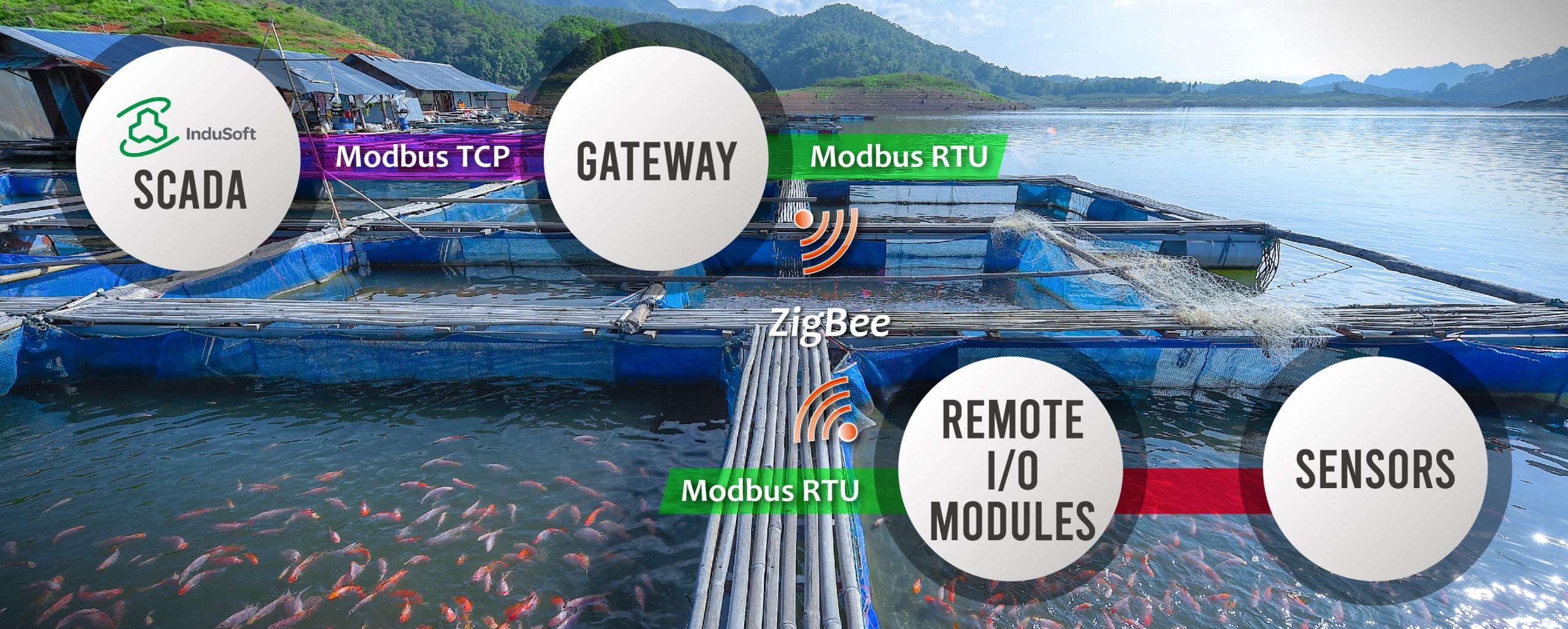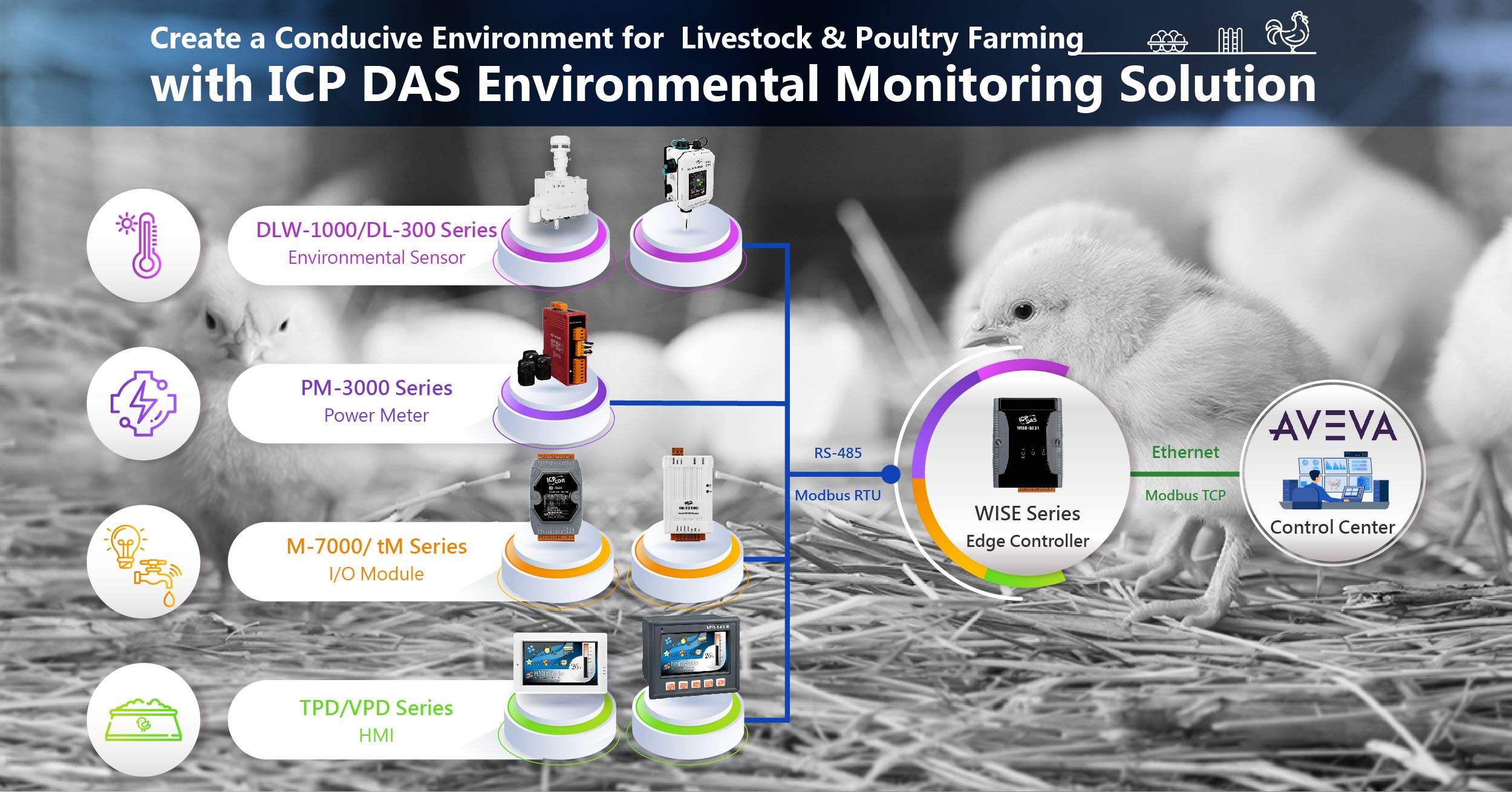Smart Farming

Introduction
Why ICP DAS
Applications

There are various needs related to outdoor agriculture, such as large-scale corn field planting, outdoor fish farms facing the demands of winter injury control, where stable and highly effective modules are required in order to help control the related equipment, as well as the various features that are associated with those modules, such as water resistance, and immunity to cold and sun exposure, so as to accommodate the outdoor environment.

Saving Water and Maintaining a Constant Temperature–ICP DAS Application Scenario for Smart Aquaculture
According to statistics published by the Taiwan Fisheries Agency, fishery production at freshwater fish farms in Taiwan reached 259,175 tons in 2018, with an output value of up to NT$31.7 billion, where the area covered by aquaculture activities was 33,594.27 hectares.However, extreme climate events have become increasingly frequent in recent years, including high temperatures...

The indoor agriculture industry can be roughly divided into two types, culturing and planting, each of which is inseparable from the control and measurement of various environmental factors, such as those in a cooling pad system that isolates the indoor and outdoor environment in the pig industry, automatic devices that intelligently separates the dry feed from the wet drinking water, or automatically controlled water sprinklers and fertilizer injectors that are required by the planting industry.
Create a Conducive Environment for Livestock & Poultry Farming with ICP DAS Environmental Monitoring Solution
ICP DAS WISE Intelligent IIoT Edge Controller Series transmits data detected or collected by various modules and devices to the control center’s AVEVA Edge HMI/ SCADA software for data visualization and management. WISE series also enables the activation or deactivation of field equipment and systems, including lighting, cooling pad systems, circulation fans, feeder motors...

Considering that greenhouse agriculture is designed to provide a stable environment for growing crops, where the measurement and control of water, air, temperature, and humidity inside the greenhouse is crucial, ICP DAS provides environmental sensors that include communication capabilities as well as intelligent Programmable Automation Controllers that help farmers control when water sprinkling, air exhaust and ventilation, and blackout shades are switched on or off, as well as collecting relevant environmental data for background analysis and improving the production process.


